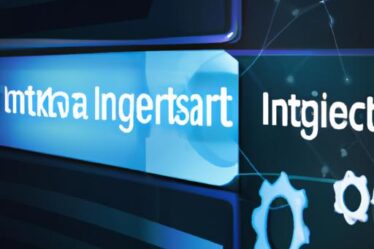
Introduction
In today’s fast-paced business world, managing human resources efficiently is crucial for organizational success. Enter erp software for hr, a game-changer in streamlining HR processes and enhancing workforce management. This innovative technology integrates various HR functions into a single platform, offering a comprehensive solution for businesses of all sizes.
The importance of utilizing ERP software for HR cannot be overstated. By automating manual tasks, simplifying complex processes, and providing real-time data insights, this software empowers HR professionals to focus on strategic initiatives that drive business growth. From recruitment and onboarding to performance management and employee engagement, ERP software for HR revolutionizes the way organizations manage their most valuable asset – their people.
Are you ready to unlock the full potential of your HR department? Let’s delve deeper into the key features, benefits, and considerations of ERP software for HR to understand how this technology can transform your HR practices and elevate your organization to new heights.
Key Features of ERP Software for HR
Automation of HR Processes
In the realm of HR management, time-consuming manual tasks can hinder productivity and efficiency. ERP software for HR addresses this challenge by automating routine processes such as payroll management, leave tracking, and employee data management. By minimizing manual intervention, organizations can reduce errors, improve process accuracy, and free up valuable time for HR professionals to focus on strategic initiatives.
Employee Self-Service Options
Empowering employees with self-service capabilities is a hallmark of modern HR management. ERP software for HR offers a user-friendly interface that allows employees to access and update their personal information, submit leave requests, view pay stubs, and participate in performance evaluations. This self-service functionality not only enhances employee satisfaction and engagement but also reduces the administrative burden on HR staff.
Performance Management Tools
Effective performance management is essential for driving employee growth and organizational success. ERP software for HR provides robust performance management tools that enable managers to set goals, track progress, provide feedback, and conduct performance reviews. By centralizing performance data and insights, organizations can make informed decisions to optimize workforce performance and ensure alignment with business objectives.
Recruitment and Onboarding Features
Recruitment and onboarding are critical stages in the employee lifecycle, shaping the employee experience from the outset. ERP software for HR streamlines the recruitment process by automating job postings, applicant tracking, and candidate evaluation. Additionally, it facilitates seamless onboarding through electronic document management, training modules, and integration with other HR systems. By leveraging these features, organizations can attract top talent, accelerate time-to-hire, and foster a positive onboarding experience for new employees.
Benefits of Using ERP Software for HR
Increased Efficiency and Productivity
ERP software for HR streamlines repetitive tasks, such as payroll processing and leave management, allowing HR professionals to focus on more strategic activities. By automating routine processes, organizations can operate more efficiently and allocate resources effectively, leading to increased productivity across the board.
Improved Data Accuracy
One of the key advantages of ERP software for HR is its ability to centralize and maintain accurate employee data. With a single source of truth, HR departments can ensure data consistency and integrity, reducing the risk of errors and improving compliance with regulatory requirements. Accurate data is essential for making informed decisions and driving organizational success.
Better Decision-Making through Data Analytics
ERP software for HR provides valuable insights into workforce trends, performance metrics, and employee engagement levels through advanced analytics tools. By leveraging this data, HR professionals can make data-driven decisions that align with organizational goals and improve overall business outcomes. With access to real-time analytics, organizations can proactively address HR challenges and capitalize on opportunities for growth.
Enhanced Employee Satisfaction and Engagement
By streamlining HR processes, improving data accuracy, and enabling data-driven decision-making, ERP software for HR contributes to enhanced employee satisfaction and engagement. Empowered by self-service options, timely feedback, and personalized development opportunities, employees feel more valued and motivated to contribute their best work. A satisfied and engaged workforce is essential for fostering a positive company culture and driving long-term success.
Considerations for Choosing ERP Software for HR
Scalability and Customization Options
When selecting ERP software for HR, it is crucial to consider the scalability and customization options offered by the platform. As your organization grows, your HR needs will evolve, requiring a system that can adapt to changing requirements. Look for software that can scale with your business and be tailored to meet your specific HR processes and workflows.
Integration with Other Systems
Another key consideration when choosing ERP software for HR is its ability to seamlessly integrate with other systems within your organization. From payroll and benefits management to performance evaluation tools, the ERP software should integrate with existing systems to ensure data consistency and streamline processes across departments. Compatibility with third-party applications and APIs is also essential for a cohesive HR ecosystem.
User-Friendliness and Ease of Implementation
The usability of the ERP software for HR is paramount to its successful adoption within your organization. Opt for a user-friendly interface that is intuitive and easy to navigate for both HR professionals and employees. Additionally, consider the ease of implementation and training required for your team to effectively utilize the software. A smooth onboarding process will facilitate quick adoption and maximize the benefits of the ERP system.
Cost and Return on Investment
Finally, the cost and return on investment (ROI) of the ERP software for HR should be carefully evaluated. Consider not only the upfront costs of implementation but also ongoing maintenance and support fees. Calculate the potential ROI by assessing the efficiency gains, time savings, and improved HR outcomes that the software can deliver. A well-planned investment in ERP software for HR can yield significant returns in terms of productivity, employee satisfaction, and overall business success.
Case Studies of Companies Using ERP Software for HR
Success Stories of Businesses
Numerous businesses have reaped the benefits of implementing ERP software for HR. Company X, a global tech firm, saw a significant decrease in recruitment time and costs after adopting ERP software for HR. By automating their hiring processes and leveraging data analytics, they were able to identify top talent efficiently and enhance their employee retention rates.
Real-World Impact
Company Y, a retail giant, transformed their HR operations by implementing ERP software. With features like self-service portals and performance management tools, they improved employee engagement and satisfaction. This resulted in a more productive workforce and a positive impact on the overall organizational culture. By leveraging ERP software for HR, Company Y streamlined their HR processes and achieved remarkable results.
Conclusion
In conclusion, ERP software for HR is a powerful tool that can revolutionize the way organizations manage their human resources. By centralizing HR functions, automating processes, and providing valuable insights, this technology enhances efficiency, accuracy, and employee satisfaction.
As businesses strive to stay competitive in a rapidly evolving landscape, leveraging ERP software for HR is no longer a luxury but a necessity. The benefits of using this software are clear – increased productivity, data-driven decision-making, and streamlined HR operations.
So, if you’re looking to take your HR management to the next level, consider implementing ERP software tailored to your organization’s needs. Embrace the future of HR management and empower your team to achieve greater success. With ERP software for HR by your side, the possibilities are endless.


